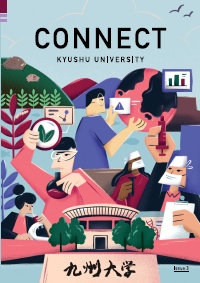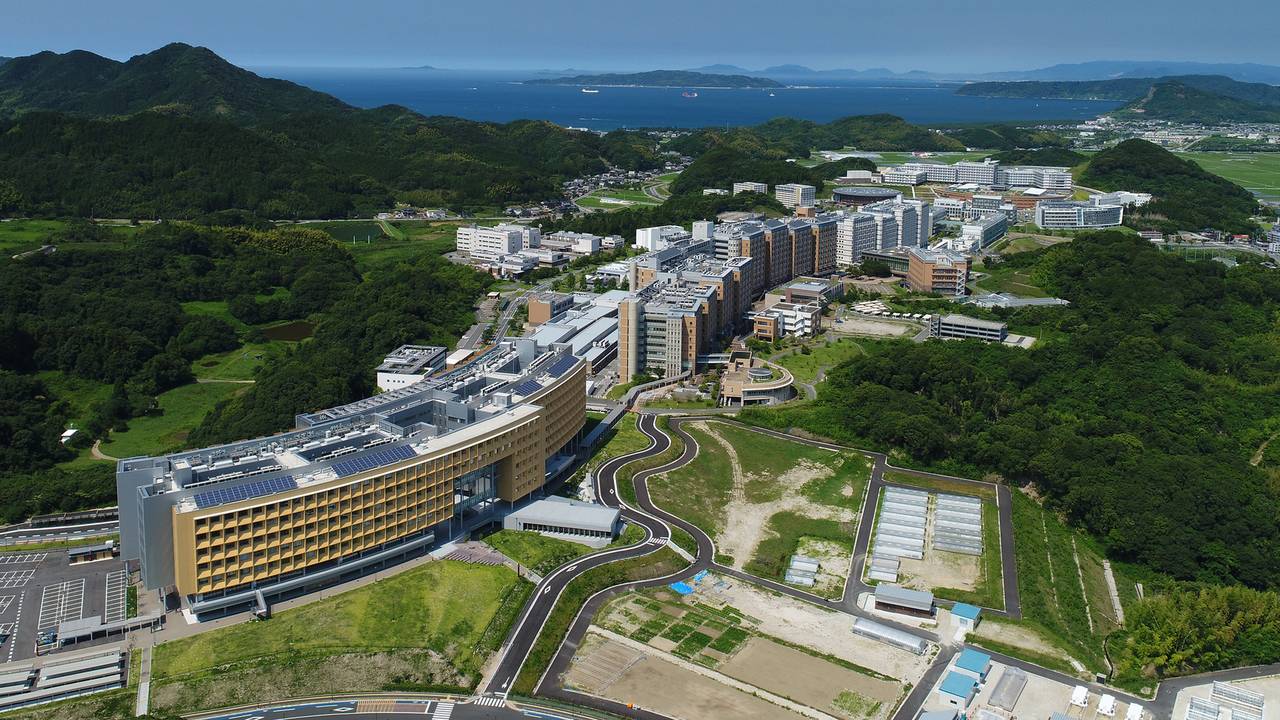
Kyushu University’s Vision 2030
Driving social change with integrative knowledge
Kyushu University was chosen as a Designated National University Corporation by Japan’s Minister of Education, Culture, Sports, Science and Technology (MEXT) on November 22, 2021—an honor given to only certain elite national universities. The designation comes with the expectation to excel in the world, coupled with a broader freedom to generate funds through university-led startups and public-private collaboration in research and education. These profits are then reinvested into the university’s research, teaching, and outreach activities.
In this feature, Aya Hagishima, Vice President for Research and Gender Equality and Professor in the Interdisciplinary Graduate School of Engineering Sciences, speaks to President Tatsuro Ishibashi about Kyushu University’s vision.
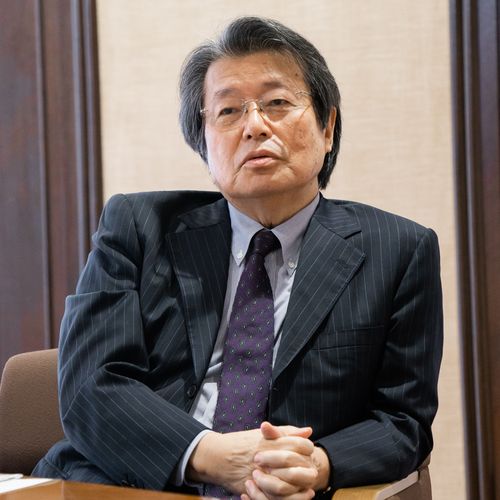
[The] vision should live up to young researchers’ expectations and ensure that they will benefit most from it.
AH Could you tell us about Kyushu University’s vision?
TI ‣ The global climate crisis is threatening our existence and a single discipline of science is powerless to tackle it. Therefore, the vision’s multidisciplinary nature corresponds to the complex nature of such problems the world is facing. Sustainability and wellbeing form two pillars of the vision. So, we chose three research areas where we excel as areas for intervention to tackle related complex problems: decarbonization, medicine and health, and environment and food.
We then coordinate our efforts in these three areas through knowledge integration, or ‘integrative knowledge.’ For example, to make science societally relevant, we need policies for the social implementation of discoveries in science and technology. For such policies, we need knowledge from the humanities and social sciences. By being integrative, we can maximize the application of new technologies into areas never even thought of before.
AH Do you think Kyushu University is particularly good at generating integrative knowledge?
TI ‣ Yes. Kyushu University is a comprehensive university with 12 undergraduate and 18 graduate schools. Our disciplines extend from the humanities and social sciences to natural sciences and even design. We can draw on this diversity of disciplines to generate integrative knowledge.
We have four campuses, with Ito Campus as the largest single campus in Japan. Home to popular faculties such as engineering, agriculture, social sciences, and education, the Ito Campus also hosts our new undergraduate school, the School of Interdisciplinary Science and Innovation that specifically trains students in integrative knowledge. Besides the Ito Campus, we also have the Ohashi Campus, our state-of-the-art design center, and the Chikushi Campus, our innovative science fusion center. There is also the Maedashi Campus, our frontier in medicine and life science.
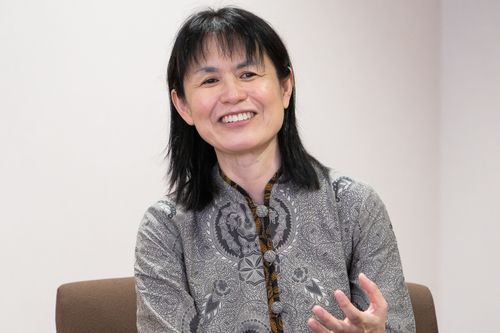
AH What is important when generating integrative knowledge?
TI ‣ It is important to have an environment where researchers can freely pursue curiosity-driven, open-ended research. In our vision, we made it our responsibility to secure an environment where researchers can pursue both basic and applied science, as many of them work with the goal of coming up with new findings and academic theories. Such basic research is fundamental if we want innovation.
AH What factors did you consider when coming up with this vision?
TI ‣ First, the vision should live up to young researchers’ expectations and ensure that they will benefit most from it. Second, the vision should outline the university’s positive contributions to society. Lastly and most importantly, the vision should enable financial replenishment, meaning that new value we create—be it economic or social—should bring us profit. The fruits of our achievements that we bring to society should then lead to a return on investment.
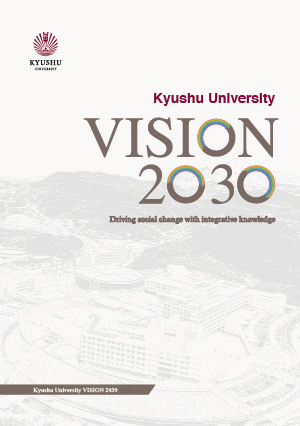
AH Why are you keen on investing in young researchers?
TI ‣ Reflecting on my own experience as a researcher, I was most productive around the age of 30—that was when my brain was the sharpest. I think this is true with other researchers as well. So, investing in this fruitful generation is our priority.
AH Many young researchers across the world are looking to pursue their post-doctoral training in Japan. A global, multidisciplinary environment seems to have more potential for innovation. What are your thoughts on this?
TI ‣ Diversity enriches research. To attract young researchers from overseas, we must reach out to them. Information about Kyushu University should be put out there, such as the excellent research conducted here, how advanced we are, and how great our campus is. Essentially, international outreach is crucial.
I am speaking from personal experience. I went to the US as a young ophthalmologist because my area of research was more advanced there. Of course, the climate in California was lovely—no need for an umbrella—but what really attracted me was their advanced research environment.
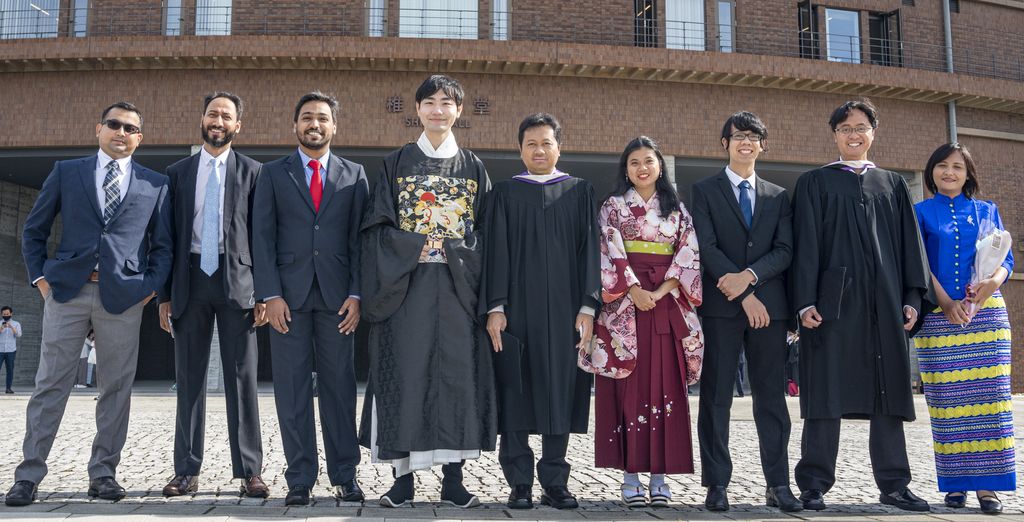
AH Could you tell us about your experience in California?
TI ‣ I was in Los Angeles (LA) from 1984 to 1986 at the Estelle Doheny Eye Foundation, affiliated at that time with the University of Southern California’s School of Medicine. People in California read a paper I wrote after graduating from the Kyushu University Graduate School of Medical Sciences and invited me to come over.
In LA, I was given a monthly stipend of US,000—that’s when US.00 was worth ¥250—and dedicated two years solely to conducting research. It’s this kind of conducive environment I hope to introduce here at Kyushu University, beginning with the ‘free quarter for research,’ an academic quarter dedicated solely for research.
In the vision, we promise to provide graduate students with scholarships to pursue research abroad, opportunities to conduct company internships, and even start businesses.
AH Why is graduate education emphasized in the vision?
TI ‣ Graduate education is the key to developing a university and even society at large. I believe Japanese society should change to help it succeed. At present, many Japanese companies do not provide appropriate salaries to graduate degree holders. To make graduate education an attractive career, companies should pay them better. Universities should also give more financial and career support. In the vision, we promise to provide graduate students with scholarships to pursue research abroad, opportunities to conduct company internships, and even start businesses.
AHWhat is the greatest advantage of Kyushu University?
TI ‣ Our location and quality of life. Fukuoka is a growing metropolis, and because of its proximity to the Asian continent, throughout history almost everything that came to Japan arrived first at Kyushu. Additionally, the local community is very supportive of our work. Both the public and private sectors are very willing to be part of our vision to try and implement new technology and ideas in Fukuoka.
Fukuoka has it all: we are right by the ocean, next to a dazzling countryside like Itoshima, and we are now rated as one of the world’s best places to live. Nature and urban life are also both very accessible here—along with the rest of Japan. Tokyo is just a six-hour ride by the bullet-train. But you’ll be hard pressed to leave once you are awed by Kyushu’s beauty and culture.

This article first appeared in issue 3 of Connect, Kyushu University's English-language magazine. View other articles online,download a PDF (4.5 MB) of the full issue, or browse previous issues to learn about more exciting things happening at Kyushu U.
































